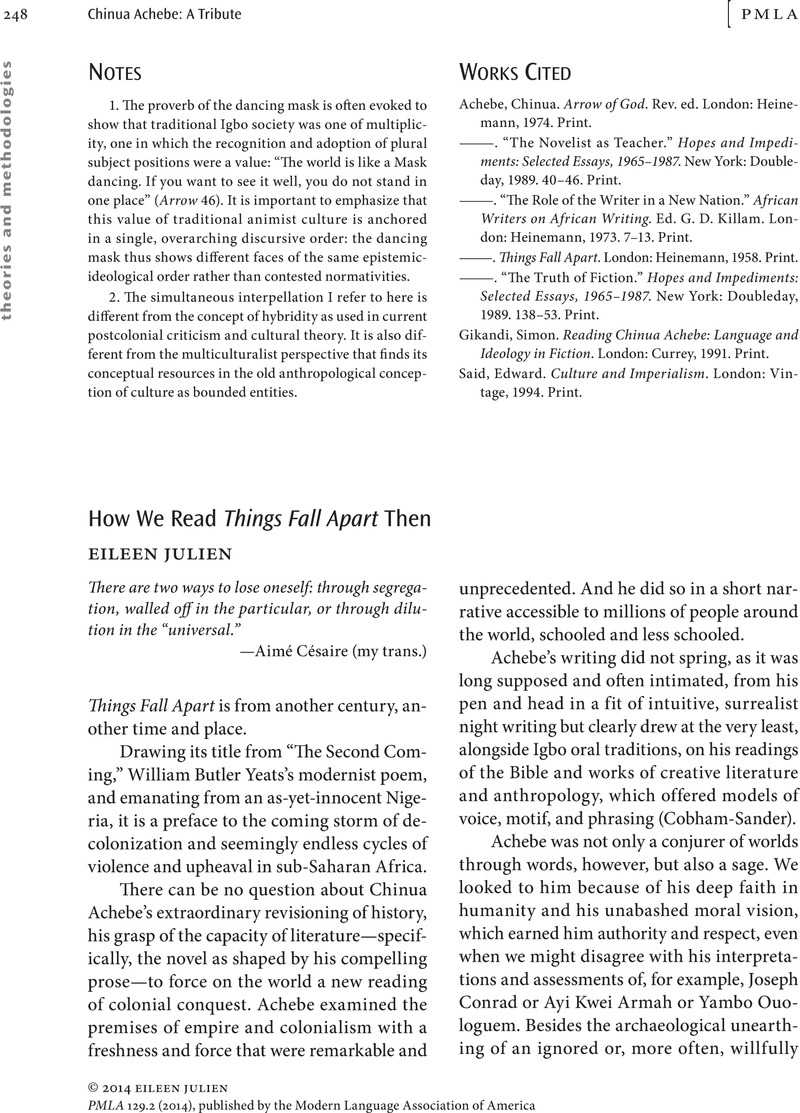Cobham-Sander, Rhonda. “
Forewords and Foreskins: The Author as Ethnographer in African Literature.”
The Locations and Dislocations of African Literature: A Dialogue between Humanists and Social Scientists. Ed. Eileen Julien and Biodun Jeyifo. Trenton: Africa World, forthcoming
2014.
Google Scholar 